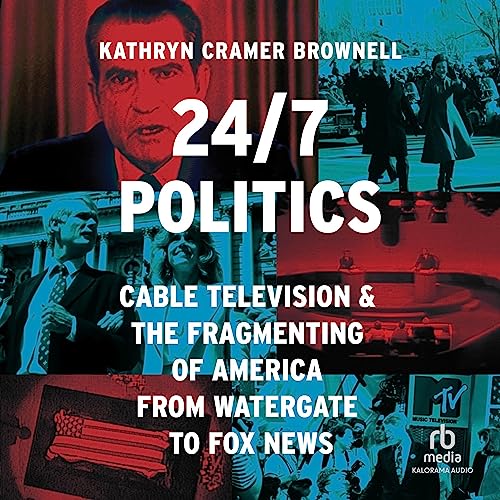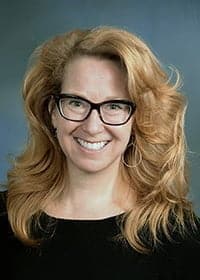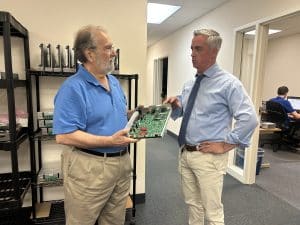It is difficult, sometimes, to remember that our highly mediated political environment is only as old as Leonardo DiCaprio. The A-list movie star was born in 1979, at which time Americans still received their news and political information from newspapers and the Big Three television networks: ABC, NBC, CBS. The Fairness Doctrine, a law mandating broadcast outlets cover both sides of controversial topics, was still in place. Al Gore had not yet invented the Internet.
The last half century has seen sprawling technological developments that completely changed the way we receive information and communicate, but it is always a good thing to remember how we got here. Kathryn Brownell’s new book 24/7 Politics: Cable Television & The Fragmenting of America from Watergate to Fox News is a thorough review of the political and business decisions within American media that led to the dominance of Cable TV. Brownell is a historian, and the book is more than a deep dive into a medium on its way into extinction. It is an exhaustive reflection on how media and politics combine to shape our culture, even though as the nation experiences this influence, we may not be aware of its consequences at the time.
READ: One State Is Poised To Teach Media Literacy Starting In Kindergarten
Brownell conducted much of her painstaking research at the C-SPAN Archives at Perdue University, because “America’s Network” was conceived by founder Brian Lamb and established by the very cable industry that the author describes. I’ll come clean here and report that I was a C-SPAN producer from 1991 to 1996 and maintain strong affection for both Lamb and for the little network that could. For this reason alone, 24/7 Politics was a good read for me.
I suspect that it will be a good read for anyone who is interested in the topic of political communication, because Brownell is a great writer, the subject is decidedly relevant, and the timing of the book’s publication is beyond prescient. Cable television changed the nature of the political game, much as radio and broadcast TV changed it before. Thanks to streaming and digital information, cord cutting will likely send cable to the same effect as radio and broadcast TV: still available but minimized in its command.
READ: Take a Trip Into the ‘Mirror World’ with Naomi Klein’s New Book ‘Doppelganger’
Brownell argues that the specificity and tailored disposition of cable lay the foundation for our national fragmentation, and she is not wrong. Just as Neil Postman predicted in 1985 that television’ amalgamation of information and entertainment would lead Americans to “amuse ourselves to death,” the niche programming from cable facilitated our embrace of personalized politics and bespoke facts. Thanks to cable TV, not only can we choose the news that confirms our existing biases, but we can also choose to avoid the news all together, opting instead to binge Leonardo DiCaprio films without so much as a news flash to bring us back to reality.
The consequence of cable television will be felt long after subscriptions fade to black. This makes 24/7 Politics a must read for those who are concerned about the crumbling of American unity and disintegration of agreed upon fact.







